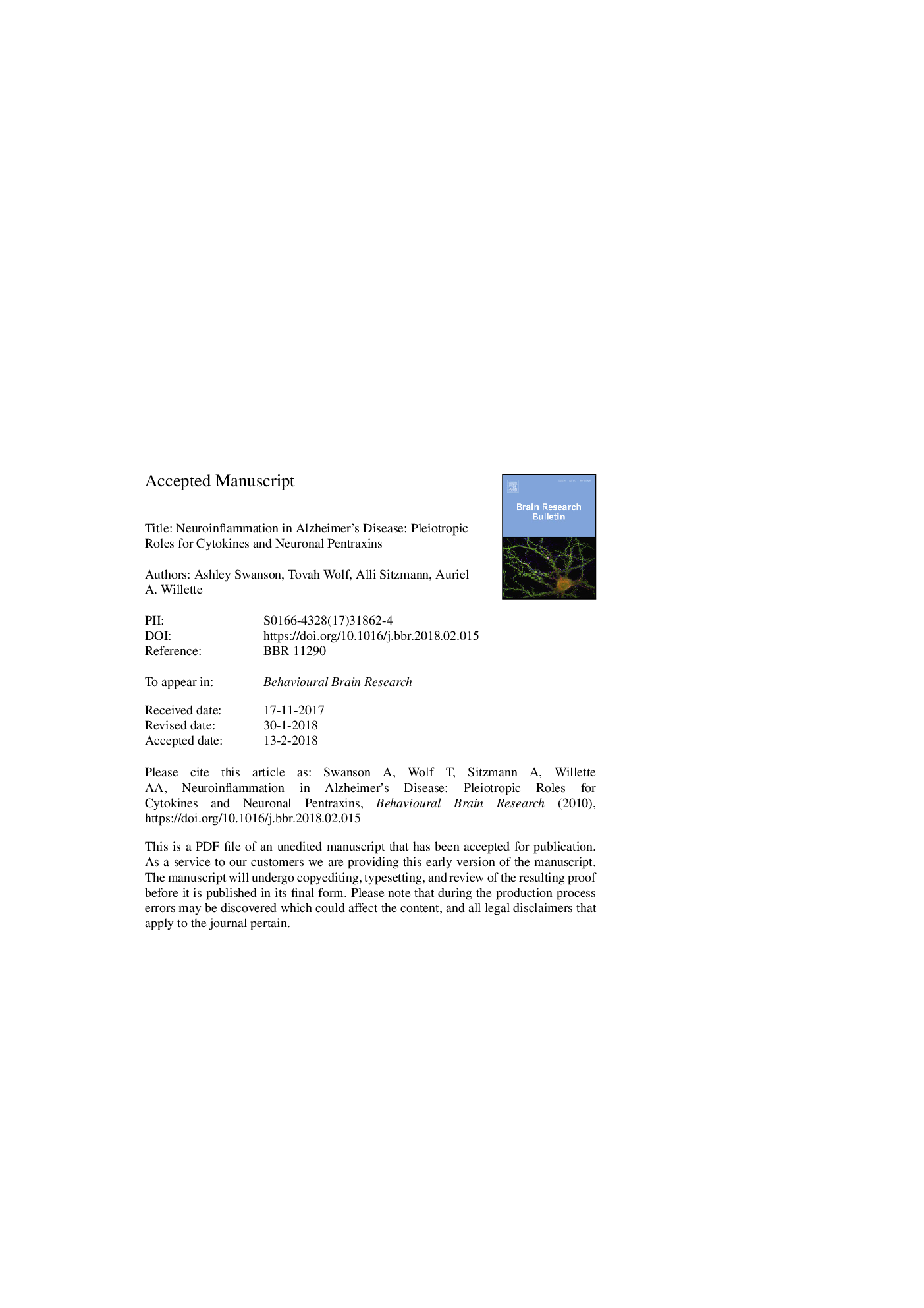| Article ID | Journal | Published Year | Pages | File Type |
|---|---|---|---|---|
| 8837769 | Behavioural Brain Research | 2018 | 32 Pages |
Abstract
Neuroinflammation is a potential factor speculated to underlie Alzheimer's disease (AD) etiopathogenesis and progression. The overwhelming focus in this area of research to date has been on the chronic upregulation of pro-inflammatory cytokines to understand how neuroinflammatory mechanisms contribute to neurodegeneration. Yet, it is important to understand the pleiotropic roles of these cytokines in modulating neuroinflammation in which they cannot be labeled as a strictly “good” or “bad” biomarker phenotype. As such, biomarkers with more precise functions are needed to better understand how neuroinflammation impacts the brain in AD. Neuronal pentraxins are a concentration- dependent group of pro- or anti- inflammatory cytokines. There is contradictory evidence of these pentraxins as being both neuroprotective and potentially detrimental in AD. Potential neuroprotective examples include their ability to predict AD-related outcomes such as cognition, memory function and synaptic refinement. This review will briefly outline the basis of AD and subsequently summarize findings for neuropathological mechanisms of neuroinflammation, roles for traditional pro-and anti-inflammatory cytokines, and data found thus far on the neuronal pentraxins.
Related Topics
Life Sciences
Neuroscience
Behavioral Neuroscience
Authors
Ashley Swanson, Tovah Wolf, Alli Sitzmann, Auriel A. Willette,
